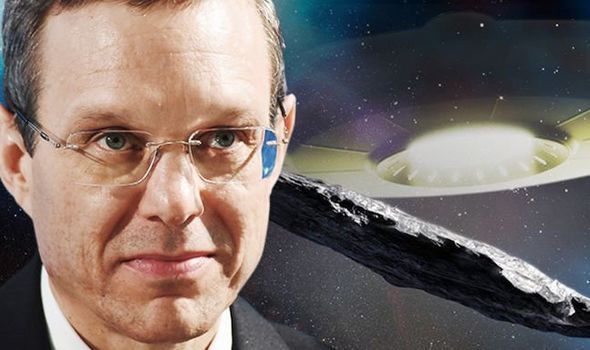
Are We Really the Smartest Kid on the Cosmic Block?
by Abraham Loeb March 4, 2019 (scientificamerican.com)
• The human species is not particularly smart. We fight among ourselves in “lose-lose” situations; we do not promote long-term solutions over short-term fixes; and we have been broadcasting our existence to the galaxy with radio waves for over a century without worrying whether about whether there are any predators or competitors in outer space.
• Mainstream scientists box themselves in under an arrogant presumption that extraterrestrials and alien artifacts do not exist, and go from there. They can only conceive of a civilization or a technology that is based upon our own environment, geology and technology. The human race as a whole suffers from the Dunning-Kruger effect, in which those with mediocre abilities insist that they’re unusually talented or smart.
• The only way that our species will mature is to get off this planet and see what’s out there. When an artefact such as Oumuamua passes through our solar system, we need to observe it with an open mind. Could it be technological debris from another civilization? We need to get past the “giggle factor” to explore the unexpected.
• We can only hope that we have not become the laughingstock of our galactic neighborhood by now. But even if we have, we can still get our act together and do better. We should find out first who is on our street by searching with our best telescopes for unusual electromagnetic flashes, industrial pollution of planetary atmospheres, artificial light or heat, artificial space debris or something completely unexpected.
• [Editor’s Note] Accolades to Harvard Professor Avi Loeb (pictured above) for breaking away from mainstream scientists’ intellectual cul-de-sac. Loeb either knows more than he’s letting on, or has great intuition about the strange cigar-shaped “asteroid”, Oumuamua, that passed through our solar system in 2017 with very unusual transit properties. In a recent ExoNews article, “Alliance War Against Deep State – Major Updates Coming”, Corey Goode recounts how he was debriefed on a U.S. Air Force secret space program mission where astronauts entered, investigated, and video recorded the ancient derelict spaceship months before it was detected moving through our solar system. Corey points out that Linda Moulton Howe has now brought forward two military men who have independent knowledge of this USAF-SSP Oumuamua mission, confirming exactly what Corey first revealed.
It is unclear how many intelligent civilizations have arisen in the Milky Way galaxy so far, but if some have, a pressing question comes to mind: were they or are they more intelligent than we are?
When reading the morning newspaper, it is difficult to avoid the thought that our own intelligence bar is not particularly high nor difficult to surpass. We fight among ourselves in “lose-lose” situations; we do not promote long-term solutions over short-term fixes; and we have been broadcasting our existence to the galaxy with radio waves for over a century without worrying whether about whether there are any predators or competitors in outer space. (If it’s the latter, they might have been ignoring us because we appear so incompetent.)
If other civilizations do exist, one key in becoming aware of them is whether we are intelligent enough to adequately interpret their signals or to identify a piece of their technology if it should appear in our solar system. One fact is clear: if we assign a zero prior probability for such evidence coming our way, as some scientists did in the case of ‘Oumuamua by invoking the principle “it’s never aliens,” we will indeed never find any. We will be like ostriches burying our heads in the sand.
In fact, this attitude may be one sign that our intelligence isn’t very impressive—that the human race as a whole suffers from the Dunning-Kruger effect, in which those with mediocre abilities insist that they’re unusually talented or smart.
How can our civilization mature? The same way kids do: by leaving home, going out into the neighborhood, meeting others and comparing notes with them. In other words, we can develop a balanced perspective on our current technological accomplishments by engaging in the search for extraterrestrial intelligence (SETI). Since our own technological development accelerates exponentially with an e-folding time of a few years, it is difficult to imagine what a much more advanced technology crafted by a civilization that had lived for a cosmic timescale—billions of such e-folding times—would look like.
As natural as this suggestion to search might seem, however it is evident that SETI faces a hostile mainstream culture in astronomy. The simple proposal to consider the possibility that ‘Oumumua is technological debris as an explanation for its unusual properties, for example was met with controversy on social media.
FAIR USE NOTICE: This page contains copyrighted material the use of which has not been specifically authorized by the copyright owner. ExoNews.org distributes this material for the purpose of news reporting, educational research, comment and criticism, constituting Fair Use under 17 U.S.C § 107. Please contact the Editor at ExoNews with any copyright issue.
Abraham Loeb, Oumuamua, the Dunning-Kruger effect